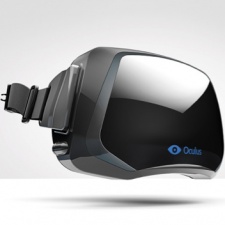Virtual reality gaming outfit Oculus has hit back at ZeniMax on a number of 'false claims' distributed to the media last week.
The crux of the issue revolves around Doom lead programmer John D. Carmack, who joined up with Oculus at the end of the summer after leaving a position at id Software - a ZeniMax subsidiary.
Last week, ZeniMax stated that the Oculus Rift gaming headset would not have existed without help from Carmack.
It further alleged that this is because Carmack took intellectual property from ZeniMax. which Oculus ultimately used to its benefit.
'disappointed, but not surprised'
Oculus responded to these claims and others early on Monday morning, stating that it was 'disappointed, but not surprised' by ZeniMax's actions.
Shortly after vowing to prove that "all of its [ZeniMax's] claims are false", Oculus officially stated that John Carmack did not take any intellectual property from ZeniMax and that there is not a single line of ZeniMax code in any Oculus product.
Oculus contends that John Carmack left ZeniMax after it stopped investing in virtual reality games. This decision 'prevented' Carmack from working on VR games, and was a key factor in his departure.
As a closing line to its defense, Oculus pointed out that the full source code for the Oculus SDK is available online and that ZeniMax has not identified any ‘stolen’ code or technology in the build.
In addition to the statement provided by Oculus, John Carmack took to his personal Twitter to weigh in on ZeniMax’s claims.
Oculus uses zero lines of code that I wrote while under contract to Zenimax.
— John Carmack (@ID_AA_Carmack) May 1, 2014
Oculus also addressed the issue of the VR edition of Doom 3 - which ZeniMax recently canceled.
According to Oculus, this cancelation came only after it refused ZeniMax's demands for a non-dilutable equity stake in Oculus.
Timing is everything
Another issue at play in the struggle between ZeniMax and Oculus is when exactly ZeniMax's claims first surfaced.
ZeniMax contends that Oculus VR founder Palmer Luckey acknowledged "in writing" ZeniMax's legal ownership of the intellectual property in question "well before the Facebook transaction was announced."
Oculus has a different timeline of events, however, as it contends that ZeniMax did not pursue claims against Oculus for stolen IP or technology until after the $2 billion Facebook deal was announced back in March.






















